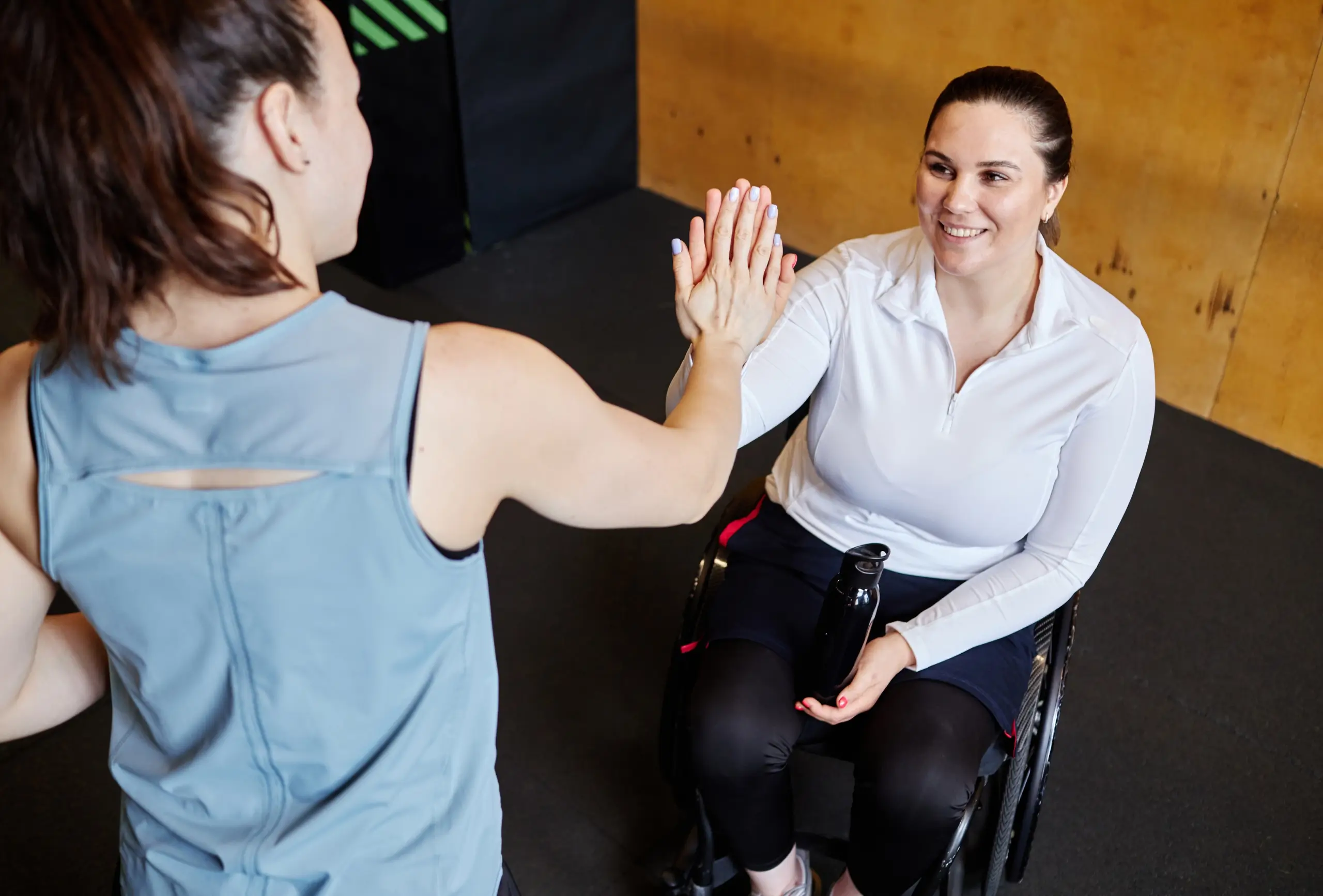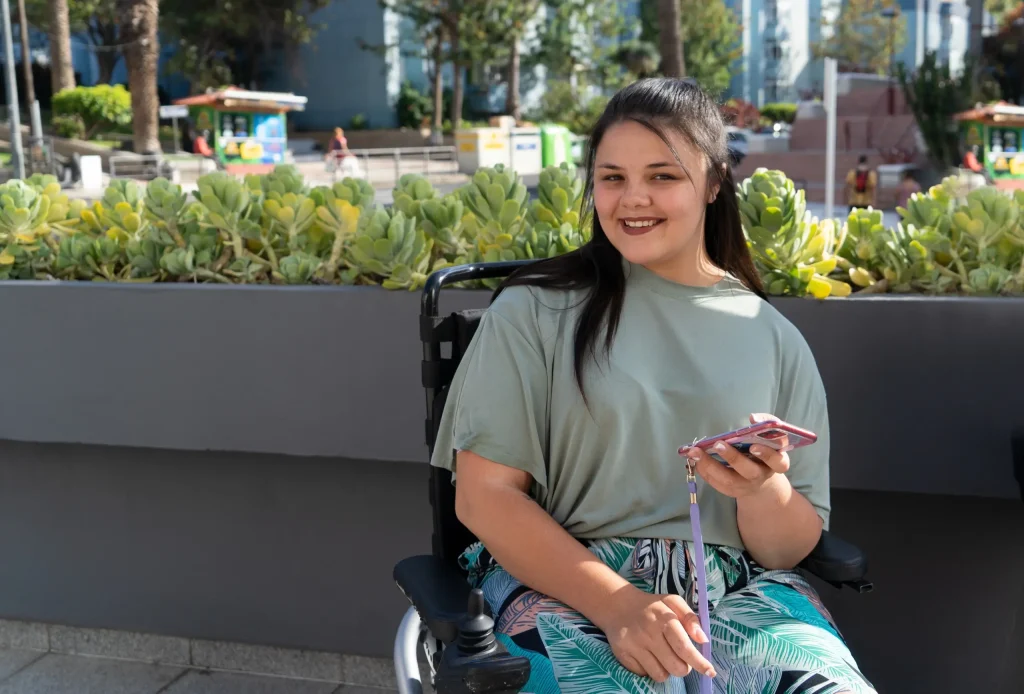The Medical Reality Most Coordinators Miss
At 2 AM on a Tuesday, I received an urgent call from a frantic mother. Her adult son with cerebral palsy was experiencing severe respiratory distress, but his NDIS support coordination team had dismissed her concerns earlier that day as “anxiety.” As an experienced nurse, I immediately recognised the symptoms she described and directed her to emergency services. What could have been a tragic outcome became a swift intervention that saved her son’s life.
This incident highlights a critical gap in the NDIS system: most support coordinators lack the clinical expertise to recognise when disability support intersects with healthcare needs. While they excel at navigating NDIS processes and connecting participants with services, they often miss the medical complexities that underlie many disability conditions.
At Ultima Care, our nursing backgrounds have shown us firsthand how NDIS support coordination transforms when it’s informed by clinical expertise. We understand that effective coordination isn’t just about administrative efficiency—it’s about recognising the healthcare component that runs through every aspect of disability support and ensuring that medical needs are seamlessly integrated into NDIS planning.
In this article, I’ll share insights from our nursing practice about why clinical expertise should be a cornerstone of quality support coordination, and how this approach can dramatically improve outcomes for NDIS participants with complex needs.
The Hidden Healthcare Component of NDIS Support Coordination
Here’s what many people don’t realise: effective NDIS support coordination is fundamentally a healthcare coordination role. Most NDIS participants live with conditions that require ongoing medical management, medication oversight, and regular monitoring for health changes. Yet traditional support coordination approaches often treat these medical needs as separate from NDIS planning.
Medical Complexities Often Overlooked
Consider the coordination needs of someone with multiple sclerosis, cerebral palsy, or acquired brain injury. Their NDIS plan must account for:
- Fluctuating symptoms that affect daily support requirements
- Medication side effects that impact service delivery timing and approaches
- Progressive conditions requiring anticipatory planning for changing needs
- Comorbid health conditions that complicate service interactions
- Equipment needs that must align with medical recommendations
Without clinical understanding, coordinators may create plans that look comprehensive on paper but fail to address these medical realities.
Integration with Healthcare Teams
Quality NDIS support coordination requires seamless integration with participants’ healthcare teams. This means understanding:
- Medical terminology and treatment goals to communicate effectively with specialists
- Therapy recommendations and how they translate into NDIS service requirements
- Hospital discharge planning and its implications for support needs
- Medication regimes and their impact on daily living requirements
- Equipment prescriptions and the technical specifications needed for proper implementation
Coordinators without clinical backgrounds often struggle with these interactions, leading to miscommunication and gaps in care.
What Standard Support Coordination Misses
Traditional support coordination focuses heavily on administrative processes—connecting participants with providers, managing budgets, and ensuring compliance with NDIS requirements. While these functions are important, they represent only part of what quality coordination should offer.
The Administrative Limitation
Most coordinators approach their role through an administrative lens:
- Budget allocation without understanding medical necessity
- Service matching based on availability rather than clinical appropriateness
- Provider selection without assessing clinical competency
- Plan reviews that focus on spending rather than health outcomes
This approach can result in plans that tick all the NDIS boxes while missing critical healthcare integration opportunities.
Communication Barriers with Healthcare Professionals
We’ve observed coordinators struggling to effectively communicate with medical teams because they:
- Lack medical terminology understanding
- Cannot interpret clinical reports or recommendations
- Miss the significance of medical updates or changes
- Fail to recognise when NDIS services need clinical oversight
These communication gaps can delay necessary service adjustments and compromise participant safety.
Generic Approaches to Complex Conditions
Without clinical insight, coordinators often apply one-size-fits-all approaches to participants with vastly different medical needs. They may not understand why someone with Parkinson’s disease requires different support timing than someone with diabetes, or how mental health conditions interact with physical disabilities to create unique support requirements.
The Clinical Advantage in NDIS Support Coordination
When NDIS support coordination is informed by clinical expertise, the quality and effectiveness of support planning transforms dramatically.
Understanding Medical Conditions and Progression
Our nursing backgrounds enable us to:
- Anticipate condition changes and plan accordingly
- Recognise early warning signs of health deterioration
- Understand treatment impacts on daily living needs
- Identify potential complications before they become crises
- Coordinate preventive strategies that reduce emergency interventions
This clinical insight allows us to create more robust, forward-thinking support plans.
Healthcare System Navigation
Clinical expertise provides advantages in healthcare system navigation:
- Direct communication with medical professionals using appropriate terminology
- Understanding of medical priorities and how they align with NDIS goals
- Recognition of urgent vs. routine medical needs
- Facilitation of effective handovers between hospital and community settings
- Integration of medical recommendations into practical NDIS service delivery
Proactive Health Monitoring
Clinically-informed coordinators can incorporate health monitoring into regular coordination activities:
- Identifying patterns in support needs that may indicate health changes
- Recognising medication effects on behaviour and function
- Monitoring for complications related to specific conditions
- Coordinating with healthcare providers when concerns arise
- Supporting families to understand medical changes and their implications
Red Flags in Support Coordination
When evaluating NDIS support coordination services, be alert to these warning signs that suggest limited clinical understanding:
| Red Flag | What It Indicates | Potential Impact |
|---|---|---|
| Avoids medical discussions | Lack of clinical confidence or knowledge | Misses important health-related planning needs |
| Generic plans regardless of condition | One-size-fits-all mentality | Inappropriate services that don’t match medical needs |
| Poor communication with medical teams | Inability to speak medical language | Delays in implementing medical recommendations |
| No emergency protocols | Unprepared for health crises | Dangerous gaps in crisis response |
| Focuses only on NDIS compliance | Administrative rather than participant focus | Misses opportunities for integrated care |
| Reluctant to discuss medications | Limited understanding of medical management | Plans that conflict with medical treatments |
Trust your instincts. If your coordinator seems uncomfortable discussing your medical needs or dismisses health concerns, they may lack the clinical expertise needed for complex coordination.
How Nursing-Led Coordination Transforms Outcomes
Let me share some real examples of how clinical expertise has transformed coordination outcomes:
James’s Journey: James, a young man with spina bifida, was experiencing frequent hospitalisations despite having extensive NDIS support. His previous coordinator focused on increasing personal care hours, but we recognised that his medical equipment wasn’t being maintained properly. By coordinating with his medical team and ensuring his support workers understood equipment protocols, we reduced his hospital admissions by 80% over six months.
Maria’s Mental Health Integration: Maria lives with both physical disabilities and depression. Her previous coordination treated these as separate issues, resulting in conflicting support approaches. Our clinical understanding enabled us to coordinate services that addressed both needs simultaneously, improving her mental health outcomes and reducing her overall support requirements.
The Thompson Family’s Peace of Mind: When their teenage daughter with cerebral palsy began experiencing seizures, the Thompson family felt overwhelmed trying to coordinate between NDIS services and medical teams. Our nursing background enabled us to facilitate communication between all providers, ensure seizure protocols were properly implemented, and provide the family with clinical education about what to expect.
Questions to Ask Your Support Coordinator
When selecting NDIS support coordination services, ask these revealing questions:
About Clinical Background
- “What clinical training or healthcare experience do you have?”
- “How do you stay current with medical developments relevant to my condition?”
- “Can you explain how my medical condition impacts my NDIS planning?”
About Healthcare Integration
- “How do you communicate with my medical team?”
- “How do you incorporate medical recommendations into my NDIS plan?”
- “What happens if my health condition changes significantly?”
About Emergency Preparedness
- “What protocols do you have for medical emergencies?”
- “How do you ensure my support workers understand my medical needs?”
- “Who can I contact for urgent health-related coordination issues?”
About Ongoing Health Management
- “How do you monitor for health changes during our regular meetings?”
- “How do you coordinate with my healthcare providers between appointments?”
- “What support do you provide during hospital admissions or medical procedures?”
Quality coordinators will welcome these questions and provide specific examples of how they integrate clinical considerations into their coordination practice.
The Future of Health-Informed Support Coordination
The NDIS sector is gradually recognising that support coordination must evolve to meet the complex healthcare needs of participants. We’re seeing increased emphasis on:
Clinical Integration Requirements
- Mandatory healthcare communication protocols for coordinators
- Clinical supervision requirements for complex cases
- Health outcome tracking as part of coordination success measures
- Medical emergency preparedness as standard practice
Recognition of Medical Complexity
- Acknowledgement that disability often involves ongoing health management
- Understanding that coordination must bridge health and social systems
- Appreciation for clinical expertise in coordination roles
- Integration of health goals with NDIS planning objectives
Enhanced Training Standards
Progressive coordination providers are investing in:
- Clinical education for coordination staff
- Healthcare system navigation training
- Medical terminology and communication skills
- Condition-specific expertise development
Your Coordination Deserves Clinical Excellence
After years of nursing practice and witnessing the impact of quality NDIS support coordination, I’m convinced that clinical expertise isn’t a luxury—it’s a necessity for participants with complex healthcare needs.
Effective coordination recognises that NDIS support and healthcare management are intrinsically linked. Your coordinator should understand your medical condition, communicate effectively with your healthcare team, anticipate your changing needs, and ensure your support services integrate seamlessly with your medical care.
You deserve coordination that goes beyond administrative processes to provide genuine clinical insight and healthcare integration. You deserve a coordinator who can recognise when your support needs are changing due to health factors and respond appropriately.
At Ultima Care, our nursing backgrounds enable us to provide NDIS support coordination that truly understands the healthcare component of disability support. We don’t just coordinate services—we coordinate care in its fullest sense, ensuring that your medical needs and NDIS goals work together to support your best possible quality of life.
If you’re ready to experience coordination that combines NDIS expertise with clinical insight, contact Ultima Care today. Let us show you how nursing-led coordination can transform your NDIS journey into a truly integrated approach to your health and wellbeing.
Your coordination should be as comprehensive as your needs. It should be clinically informed, medically integrated, and focused on your whole-person wellbeing—not just your NDIS compliance.



